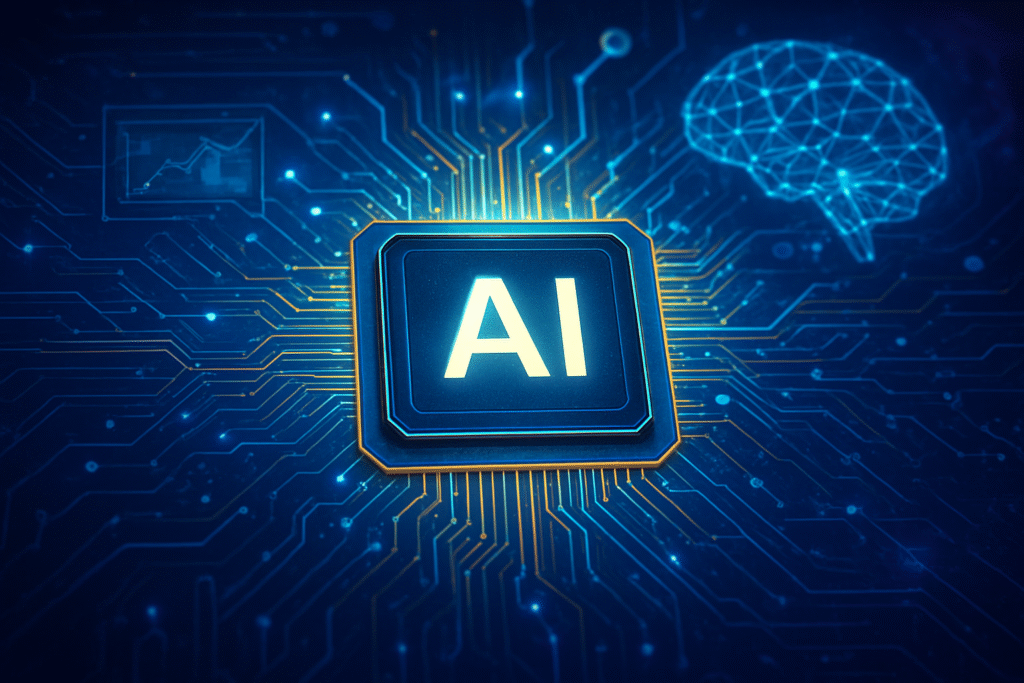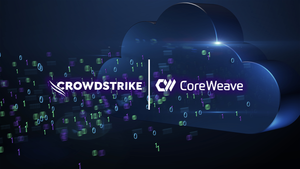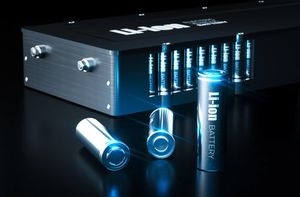
Santa Clara, CA – November 7, 2025 – Intel Corporation (NASDAQ: INTC) is executing an aggressive multi-front strategy to reclaim significant market share in the burgeoning artificial intelligence (AI) chip market. With a renewed focus on its Gaudi AI accelerators, powerful Xeon processors, and a strategic pivot into foundry services, the semiconductor giant is making a concerted effort to challenge NVIDIA Corporation's (NASDAQ: NVDA) entrenched dominance and position itself as a pivotal player in the future of AI infrastructure. This ambitious push, characterized by competitive pricing, an open ecosystem approach, and significant manufacturing investments, signals a pivotal moment in the ongoing AI hardware race.
The company's latest advancements and strategic initiatives underscore a clear intent to address diverse AI workloads, from data center training and inference to the burgeoning AI PC segment. Intel's comprehensive approach aims not only to deliver high-performance hardware but also to cultivate a robust software ecosystem and manufacturing capability that can support the escalating demands of global AI development. As the AI landscape continues to evolve at a breakneck pace, Intel's resurgence efforts are poised to reshape competitive dynamics and offer compelling alternatives to a market hungry for innovation and choice.
Technical Prowess: Gaudi 3, Xeon 6, and the 18A Revolution
At the heart of Intel's AI resurgence is the Gaudi 3 AI accelerator, unveiled at Intel Vision 2024. Designed to directly compete with NVIDIA's H100 and H200 GPUs, Gaudi 3 boasts impressive specifications: built on advanced 5nm process technology, it features 128GB of HBM2e memory (double that of Gaudi 2), and delivers 1.835 petaflops of FP8 compute. Intel claims Gaudi 3 can run AI models 1.5 times faster and more efficiently than NVIDIA's H100, offering 4 times more AI compute for BF16 and a 1.5 times increase in memory bandwidth over its predecessor. These performance claims, coupled with Intel's emphasis on competitive pricing and power efficiency, aim to make Gaudi 3 a highly attractive option for data center operators and cloud providers. Gaudi 3 began sampling to partners in Q2 2024 and is now widely available through OEMs like Dell Technologies (NYSE: DELL), Supermicro (NASDAQ: SMCI), and Hewlett Packard Enterprise (NYSE: HPE), with IBM Cloud (NYSE: IBM) also offering it starting in early 2025.
Beyond dedicated accelerators, Intel is significantly enhancing the AI capabilities of its Xeon processor lineup. The recently launched Xeon 6 series, including both Efficient-cores (E-cores) (6700-series) and Performance-cores (P-cores) (6900-series, codenamed Granite Rapids), integrates accelerators for AI directly into the CPU architecture. The Xeon 6 P-cores, launched in September 2024, are specifically designed for compute-intensive AI and HPC workloads, with Intel reporting up to 5.5 times higher AI inferencing performance versus competing AMD EPYC offerings and more than double the AI processing performance compared to previous Xeon generations. This integration allows Xeon processors to handle current Generative AI (GenAI) solutions and serve as powerful host CPUs for AI accelerator systems, including those incorporating NVIDIA GPUs, offering a versatile foundation for AI deployments.
Intel is also aggressively driving the "AI PC" category with its client segment CPUs. Following the 2024 launch of Lunar Lake, which brought enhanced cores, graphics, and AI capabilities with significant power efficiency, the company is set to release Panther Lake in late 2025. Built on Intel's cutting-edge 18A process, Panther Lake will integrate on-die AI accelerators capable of 45 TOPS (trillions of operations per second), embedding powerful AI inference capabilities across its entire consumer product line. This push is supported by collaborations with over 100 software vendors and Microsoft Corporation (NASDAQ: MSFT) to integrate AI-boosted applications and Copilot into Windows, with the Intel AI Assistant Builder framework publicly available on GitHub since May 2025. This comprehensive hardware and software strategy represents a significant departure from previous approaches, where AI capabilities were often an add-on, by deeply embedding AI acceleration at every level of its product stack.
Shifting Tides: Implications for AI Companies and Tech Giants
Intel's renewed vigor in the AI chip market carries profound implications for a wide array of AI companies, tech giants, and startups. Companies like Dell Technologies, Supermicro, and Hewlett Packard Enterprise stand to directly benefit from Intel's competitive Gaudi 3 offerings, as they can now provide customers with high-performance, cost-effective alternatives to NVIDIA's accelerators. The expansion of Gaudi 3 availability on IBM Cloud further democratizes access to powerful AI infrastructure, potentially lowering barriers for enterprises and startups looking to scale their AI operations without incurring the premium costs often associated with dominant players.
The competitive implications for major AI labs and tech companies are substantial. Intel's strategy of emphasizing an open, community-based software approach and industry-standard Ethernet networking for its Gaudi accelerators directly challenges NVIDIA's proprietary CUDA ecosystem. This open approach could appeal to companies seeking greater flexibility, interoperability, and reduced vendor lock-in, fostering a more diverse and competitive AI hardware landscape. While NVIDIA's market position remains formidable, Intel's aggressive pricing and performance claims for Gaudi 3, particularly in inference workloads, could force a re-evaluation of procurement strategies across the industry.
Furthermore, Intel's push into the AI PC market with Lunar Lake and Panther Lake is set to disrupt the personal computing landscape. By aiming to ship 100 million AI-powered PCs by the end of 2025, Intel is creating a new category of devices capable of running complex AI tasks locally, reducing reliance on cloud-based AI and enhancing data privacy. This development could spur innovation among software developers to create novel AI applications that leverage on-device processing, potentially leading to new products and services that were previously unfeasible. The rumored acquisition of AI processor designer SambaNova Systems (private) also suggests Intel's intent to bolster its AI hardware and software stacks, particularly for inference, which could further intensify competition in this critical segment.
A Broader Canvas: Reshaping the AI Landscape
Intel's aggressive AI strategy is not merely about regaining market share; it's about reshaping the broader AI landscape and addressing critical trends. The company's strong emphasis on AI inference workloads aligns with expert predictions that inference will ultimately be a larger market than AI training. By positioning Gaudi 3 and its Xeon processors as highly efficient inference engines, Intel is directly targeting the operational phase of AI, where models are deployed and used at scale. This focus could accelerate the adoption of AI across various industries by making large-scale deployment more economically viable and energy-efficient.
The company's commitment to an open ecosystem for its Gaudi accelerators, including support for industry-standard Ethernet networking, stands in stark contrast to the more closed, proprietary environments often seen in the AI hardware space. This open approach could foster greater innovation, collaboration, and choice within the AI community, potentially mitigating concerns about monopolistic control over essential AI infrastructure. By offering alternatives, Intel is contributing to a healthier, more competitive market that can benefit developers and end-users alike.
Intel's ambitious IDM 2.0 framework and significant investment in its foundry services, particularly the advanced 18A process node expected to enter high-volume manufacturing in 2025, represent a monumental shift. This move positions Intel not only as a designer of AI chips but also as a critical manufacturer for third parties, aiming for 10-12% of the global foundry market share by 2026. This vertical integration, supported by over $10 billion in CHIPS Act grants, could have profound impacts on global semiconductor supply chains, offering a robust alternative to existing foundry leaders like Taiwan Semiconductor Manufacturing Company (NYSE: TSM). This strategic pivot is reminiscent of historical shifts in semiconductor manufacturing, potentially ushering in a new era of diversified chip production for AI and beyond.
The Road Ahead: Future Developments and Challenges
Looking ahead, Intel's AI roadmap includes several key developments that promise to further solidify its position. The late 2025 release of Panther Lake processors, built on the 18A process, is expected to significantly advance the capabilities of AI PCs, pushing the boundaries of on-device AI processing. Beyond that, the second half of 2026 is slated for the shipment of Crescent Island, a new 160 GB energy-efficient GPU specifically designed for inference workloads in air-cooled enterprise servers. This continuous pipeline of innovation demonstrates Intel's long-term commitment to the AI hardware space, with a clear focus on efficiency and performance across different segments.
Experts predict that Intel's aggressive foundry expansion will be crucial for its long-term success. Achieving its goal of 10-12% global foundry market share by 2026, driven by the 18A process, would not only diversify revenue streams but also provide Intel with a strategic advantage in controlling its own manufacturing destiny for advanced AI chips. The rumored acquisition of SambaNova Systems, if it materializes, would further bolster Intel's software and inference capabilities, providing a more complete AI solution stack.
However, challenges remain. Intel must consistently deliver on its performance claims for Gaudi 3 and future accelerators to build trust and overcome NVIDIA's established ecosystem and developer mindshare. The transition to a more open software approach requires significant community engagement and sustained investment. Furthermore, scaling up its foundry operations to meet ambitious market share targets while maintaining technological leadership against fierce competition from TSMC and Samsung Electronics (KRX: 005930) will be a monumental task. The ability to execute flawlessly across hardware design, software development, and manufacturing will determine the true extent of Intel's resurgence in the AI chip market.
A New Chapter in AI Hardware: A Comprehensive Wrap-up
Intel's multi-faceted strategy marks a decisive new chapter in the AI chip market. Key takeaways include the aggressive launch of Gaudi 3 as a direct competitor to NVIDIA, the integration of powerful AI acceleration into its Xeon processors, and the pioneering push into AI-enabled PCs with Lunar Lake and the upcoming Panther Lake. Perhaps most significantly, the company's bold investment in its IDM 2.0 foundry services, spearheaded by the 18A process, positions Intel as a critical player in both chip design and manufacturing for the global AI ecosystem.
This development is significant in AI history as it represents a concerted effort to diversify the foundational hardware layer of artificial intelligence. By offering compelling alternatives and advocating for open standards, Intel is contributing to a more competitive and innovative environment, potentially mitigating risks associated with market consolidation. The long-term impact could see a more fragmented yet robust AI hardware landscape, fostering greater flexibility and choice for developers and enterprises worldwide.
In the coming weeks and months, industry watchers will be closely monitoring several key indicators. These include the market adoption rate of Gaudi 3, particularly within major cloud providers and enterprise data centers; the progress of Intel's 18A process and its ability to attract major foundry customers; and the continued expansion of the AI PC ecosystem with the release of Panther Lake. Intel's journey to reclaim its former glory in the silicon world, now heavily intertwined with AI, promises to be one of the most compelling narratives in technology.
This content is intended for informational purposes only and represents analysis of current AI developments.
TokenRing AI delivers enterprise-grade solutions for multi-agent AI workflow orchestration, AI-powered development tools, and seamless remote collaboration platforms.
For more information, visit https://www.tokenring.ai/.




